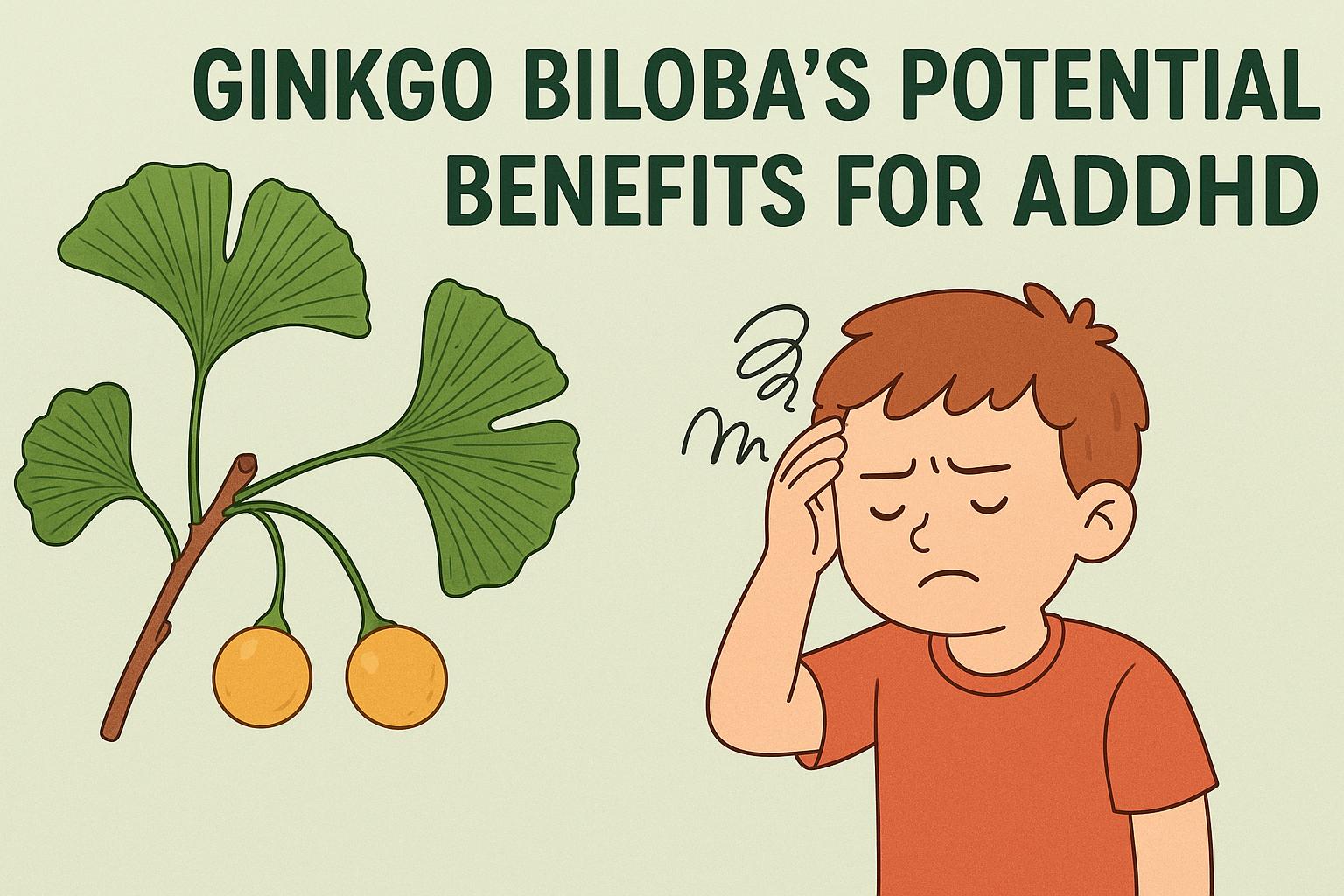Introduction to Ginkgo Biloba
Ginkgo biloba, commonly referred to simply as ginkgo, is a unique tree native to China. Renowned for its long history of medicinal use, this ancient plant has been a significant component of traditional Chinese medicine for thousands of years. The leaves and seeds of the ginkgo tree have been utilized in various treatments, although it is the leaves that are more commonly used in supplements today due to their health-promoting attributes. Ginkgo biloba is praised not only for its potential cognitive benefits but also for its overall contribution to wellness.
Ginkgo leaves contain a rich assortment of bioactive compounds that are purported to offer a range of health benefits. These compounds are believed to possess properties that may improve circulation, reduce inflammation, and act as antioxidants, thereby protecting cells from damage. As a result, ginkgo biloba has attracted attention in the field of dietary supplements and modern medicine, particularly regarding its possible effects on cognitive disorders and neurological conditions.
In recent years, there has been an increased interest in studying ginkgo biloba for its potential effects on Attention Deficit Hyperactivity Disorder (ADHD), a condition affecting millions worldwide. Researchers are exploring whether ginkgo’s distinctive properties might have a role in alleviating the symptoms associated with ADHD.
Understanding ADHD
Attention Deficit Hyperactivity Disorder (ADHD) is a common neurodevelopmental disorder that typically manifests during childhood but can continue into adulthood. Characterized primarily by inattention, hyperactivity, and impulsivity, ADHD can vary widely in terms of severity and presentation. Symptoms include difficulty in maintaining attention, frequent daydreaming, restlessness, and the tendency to act without thinking. These symptoms can significantly impact an individual’s daily functioning, affecting academic performance, work efficiency, and social interactions.
The exact causes of ADHD remain a topic of ongoing research, with current understanding suggesting a combination of genetic, environmental, and neurological factors. Disruptions in the brain’s dopamine system, which is crucial for maintaining attention and regulating mood, are thought to play a significant role. Current treatment modalities often include a combination of medication, behavioral therapy, and lifestyle modifications to manage the symptoms effectively. However, these treatments do not work equally for everyone, and there is an ongoing search for additional interventions that might offer relief.
Research on Ginkgo Biloba and ADHD
Studies investigating the potential of ginkgo biloba in managing ADHD symptoms have produced promising yet inconclusive results. Initial research indicates that ginkgo biloba could assist in enhancing attention and cognitive function in individuals with ADHD. These findings are primarily attributed to ginkgo’s purported ability to improve cerebral blood flow, which can enhance the delivery of oxygen and nutrients to the brain, thereby supporting cognitive performance.
One study documented in the journal Phytotherapy Research explored the effects of ginkgo biloba in children suffering from ADHD. The results highlighted some improvement in parameters such as attention span and hyperactivity when ginkgo was used in conjunction with standard ADHD treatments. Despite these encouraging findings, the sample size and study duration suggested the need for further extensive research to substantiate these preliminary claims. More sizable clinical trials are necessary to better understand the specific conditions under which ginkgo biloba might be most effective and to determine the optimal dosing protocols.
Mechanisms of Action
The potential effectiveness of ginkgo biloba is largely believed to be due to its bioactive components, namely flavonoids and terpenoids. These natural substances are credited with improving brain function through a couple of mechanisms.
First, flavonoids are known for their antioxidant properties. Antioxidants help neutralize free radicals, which are unstable molecules that can cause damage to healthy cells, including those in the brain. By reducing oxidative stress, these compounds might play a role in protecting neurological health and enhancing cognitive performance.
In addition, terpenoids in ginkgo are recognized for their role in improving blood circulation. Better blood flow ensures that brain cells receive more oxygen and nutrients, which can enhance mental sharpness and reduce symptoms associated with cognitive disorders. Some hypotheses also suggest that this improved circulation might help alleviate certain ADHD symptoms, such as inattention and impulsivity, although more research is required to confirm these effects.
Considerations and Safety
Despite its potential benefits, it is important to approach the use of ginkgo biloba with caution, particularly concerning safety and side effects. While generally considered safe for most people, common side effects can include headaches, stomach upset, and skin reactions. As with any supplement, individual tolerance can vary, and what works for one person may not be suitable for another.
Individuals with ADHD considering ginkgo biloba as a supplement should consult healthcare professionals before beginning use, especially if they are currently taking other medications. This caution is crucial because ginkgo biloba is known to interact with certain medications, including anticoagulants, which can increase the risk of bleeding. Professional guidance ensures that ginkgo is used safely and effectively as part of a broader treatment strategy.
Conclusion
The exploration of ginkgo biloba as a potential aid in managing ADHD presents an exciting avenue of research. While initial findings suggest possible benefits, we must remain cautious until further studies are conducted. Elaborate clinical trials could provide more definitive insights into ginkgo’s efficacy and help establish safe guidelines for its use alongside conventional ADHD treatments.
Ultimately, individuals interested in incorporating ginkgo biloba into their ADHD management plan should do so under the guidance of a qualified healthcare provider. With tailored medical advice, patients can make informed decisions about the role ginkgo biloba might play in their comprehensive treatment strategy. For those seeking to understand further the complexities of natural supplements and ADHD, the available literature, such as the referenced research article, can offer a wealth of information.

